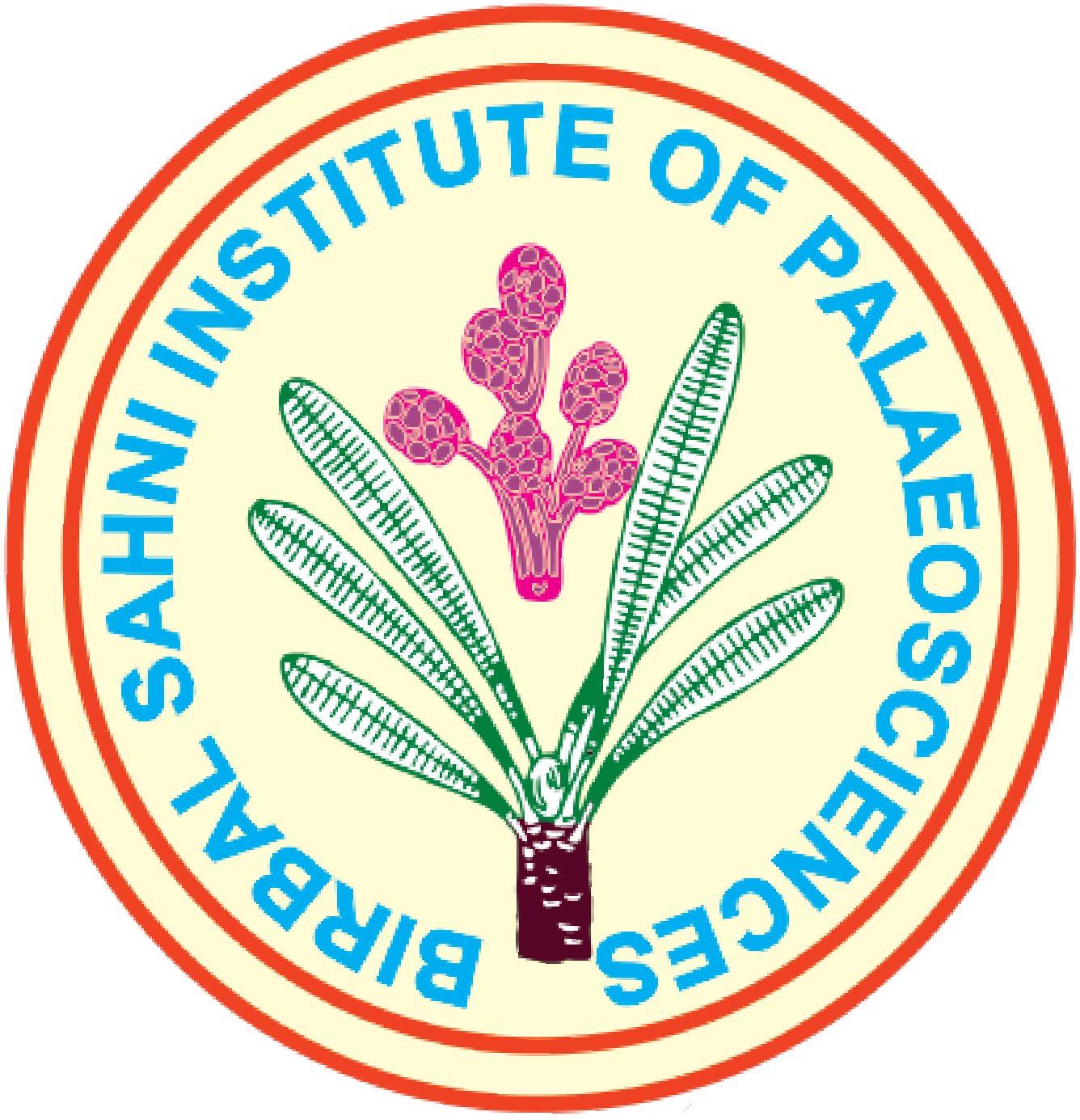Anogeissusoxylon indicum gen. et sp. nov. from the Tertiary rocks near Pondicherry, India
DOI:
https://doi.org/10.54991/jop.1962.636Abstract
The present paper describes the anatomical structures of a new fossil dicotyledonous wood collected near Pondicherry, South India. The detailed study of the fossil specimen has shown its affinities with the genus Anogeissus (combretaceae). Therefore, a new form-genus Anogeissusoxylon is created to accommodate the fossil specimen (A. indicum n. sp.).
Downloads
Metrics
References
BOUREAU, E. (1950d). Contribution a I’etude palaeoxylologique de I’Indochina (III). Terminalioxylon annamense n. sp., Combretacee des argiles neogenes de sud de ‘I’ Annam central. IV. Presence du Sapindoxylon pleikuense n. sp. dans les argiles neogenes du sud de I’ Annam. Bull. Serv. Geol. Indochine. 29(4): 5-22.
CHOWDHURY, K. A. (1932). The identification of important sleeper woods Calcutta.
Idem (1934). The identification of commercial timbers of Punjab. Delhi.
Idem (1934). A fossil Dicotyledonous wood from Assam. Curr. Sci. 3(6): 255-256.
Idem (1943). The identification of Burma commercial Timbers. Dehra Dun.
Idem (1945). Regional keys for the identification of important timbers used in Military area of Inspection. Dehra Dun.
Idem (1947). Some more commercial timbers of India. Indian For. Rec. N.S. 4(3): 1-25.
GAMBLE, J. S. (1902). A manual of Indian Timbers. London.
HENDERSON, F. Y. (1953). An atlas of end-grain photomicrographs for the identification of hard woods. Forest Prod. Res. Bull. 26: 2-73.
JANSSONIUS, H. H. (1930). Mikrographie des Holzes der auf Java vorkommenden Baumarten. 10. Leiden.
KANEHIRA, R. (1924a). Anatomical notes on Indian woods. Govt. Res. Inst. Formosa Bull: 1-40.
Idem (1924b). Identification of Philippine woods by anatomical characters. Govt. Res. Inst. Formosa Publ: 1-73.
KRISHNAN, M. S. (1949). Geology of India and Burma. Madras.
METCALFE, C. R. & CHALK, L. (1950). Anatomy of Dicotyledons. 1 and 2 Oxford.
MOLL, J. W. & JANSSONIUS, H. H. (1906). Mikrographie des Holzes der auf Java vorkommenden Baumarten. 1. Leiden.
Idem (1908). Ibid. 5. Leiden.
Idem (1908). Ibid. 7. Leiden.
NAVALE, G. K. B. (1955). On two new species of Terminalioxylon Schonfeld from the Tertiary beds of South India. The Palaeobotanist 4: 35-39. https://doi.org/10.54991/jop.1955.467
Idem (1956). Saponindoxylon indicum sp. nov. a new fossil wood from the Tertiary beds of South India. The Palaeobotanist 5: 73-77. https://doi.org/10.54991/jop.1956.489
Idem (1958). Occurrence of fossil Cynometra from the Cuddalore series near Pondicherry, India. The Palaeobotanist 7: 6-11. https://doi.org/10.54991/jop.1958.563
Idem (1960). Phyllanthium bangalamodense a new species of fossil Euphorbiaceous wood from the Cuddalore Series of India. The Palaeobotanist 9 (1-2): 11-16. https://doi.org/10.54991/jop.1960.591
Idem (1961). Some silicified dipterocarpaceous woods from the tertiary beds of the cuddalore Series near Pondicherry, India. The Palaeobotanist 11(1-2): 66-81. https://doi.org/10.54991/jop.1962.625
Idem (1961). Fossil woods of Leguminosae from the Tertiary rocks of the Cuddalore Series near Pondicherry, India. The Palaeobotanist 11(1-2): 56-65. https://doi.org/10.54991/jop.1962.623
Idem (1961). Terminalioxylon chowdhurii, a new fossil wood from the tertiary rocks of Assam. The Palaeobotanist 11 (1-2): 49-53. https://doi.org/10.54991/jop.1962.622
PEARSON, R. S. & BROWN, H. P. (1932). Commercial Timbers of India. 1 and 2. Calcutta.
RAMANUJAM, C. G. K. (1953a). Palmoxylon arcotense sp. nov., a fossil palm resembling the living genus Livistonia from South India. The Palaeobotanist 2: 89-91. https://doi.org/10.54991/jop.1953.438
Idem (1953b). Fossil woods resembling Mangifera, Shorea and Albizza in the Tertiary rocks of South Arcot, India. Curr. Sci. 22: 336-337.
Idem (1954a). Fossil woods belonging to Guttiferae, Celastraceae, Leguminosae, Sonneratiaceae and Euphorbiaceae from Tertiary rocks of South Arcot District, Madras. J. Sci. Industr. Res. 13B (2):146-147.
Idem (1954b). On some silicified woods from near Pondicherry, South India. The Palaeobotanist 3: 40-50. https://doi.org/10.54991/jop.1954.450
Idem (1955). Fossil woods of Dipterocarpaceae from the Tertiary rocks of South Arcot District, Madras. The Palaeobotanist 4: 45-56. https://doi.org/10.54991/jop.1955.469
Idem (1956a). On two new species of Terminalioxylon Schonfeld from the Tertiary rocks of South Arcot District, Madras. J. Indian Bot. Soc. 5(1): 103-113.
Idem (1956b). Fossil woods of Euphorbiaceae from the Tertiary rocks of South Arcot District, Madras. J. Indian Bot. Soc. 35(3): 285-307.
Idem (1956c). On the occurrence of fossil wood of Sonneratia: Sonneratioxylon dakshinense sp. nov. from the Tertiary of South Arcot District, Madras. The The Palaeobotanist 5(2): 78-87. https://doi.org/10.54991/jop.1956.490
Idem (1960). Silicified woods from the Tertiary rocks of South India. Palaeontographica. 106 (8): 99-140.
Idem (1958). Palmoxylon puratanum, a new species of petrified palms from the Tertiary rocks of South Arcot District, Madras. J. Indian Bot. Soc. 7(1): 129-136.
SCHONFELD, G. (1947). Holzer aus dem Tertiar von Kolumbien. Abh. Senckenberg. Naturf. Ges. 475: 4-48.
WADIA, D. N. (1953). Geology of India for students. Third Edition. London.
Downloads
Published
How to Cite
Issue
Section
License

This work is licensed under a Creative Commons Attribution-NonCommercial 4.0 International License.









